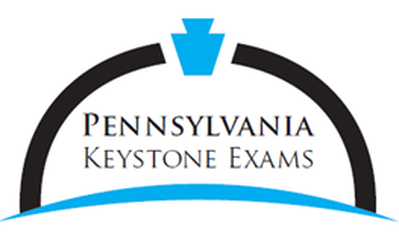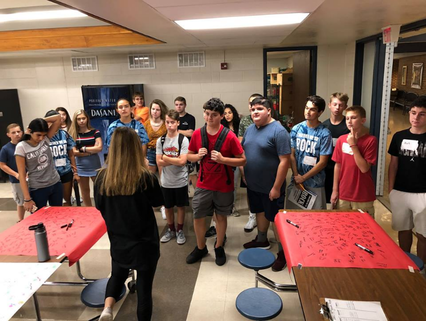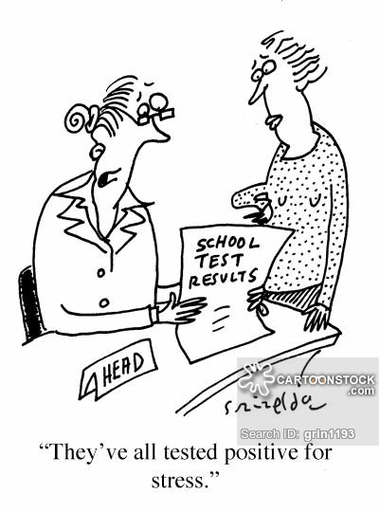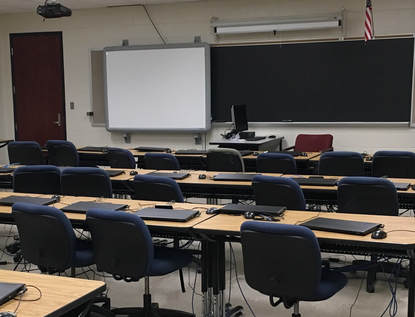 By Sarah Cruz In terms of preparing for midterms, most people may not even know where to start. They need guidance in how to get ready for midterms in the most efficient way possible, so here are five easy ways to prepare for midterms. One way to prepare for midterms is study, study, study. Whether you are looking through old notes or studying with a group of friends, it is always a good idea to know all the information you need. But, don’t study too much at once. As student Mishti Mishra suggests, “Study a bit per day instead of cramming 6 hours of studying [into] the night before.” Pacing is a great idea because stress is the most important thing to avoid and this is the most effective way to do just that. When looking through old notes you took earlier in the year, you may feel overwhelmed by the volume of information. Therefore, condensing notes or information from textbooks is the way to go. The best way to organize notes is by making notecards and study guides. This way, you can extract all key facts or ideas instead of looking at tons of pages of notes without retaining much of what you read. Also, color coding or highlighting notes is another way to organize ideas as best you can because you reinforce crucial terms or definitions when doing so. Another way to prepare is by using your resources. When teachers give out any sort of material or practice for the midterms, they are giving it as a way to help you succeed in the tests to come. So, use it to your advantage. Also, there are websites out there, such as Quizlet.com, to help make the process of studying easier. As student Dara Cohen states, “Making quizlets, or at least using quizlets is helpful because a lot of fellow classmates or teachers make them for students to use.” On Tuesdays and Thursdays after school, most teachers offer clinic for students who need help in a certain subject. So, this is another useful way to get help if you are struggling in any sort of area that is on the midterms. As student Jess Yuan says, “I reviewed my notes every night for the week leading up to the midterms. If I had questions, I made sure to ask my teacher in class or during clinic.” Lastly, getting much needed rest or sleep is a very important way to get ready for midterms. Most people don’t think about how much sleep they need, but the National Sleep Foundation identified that only 15% of teenagers sleep a healthy amount of time each school night. Therefore, try not to stay up all night studying as it will cause you to be less successful for the midterms to come. Aim for at least seven hours of sleep in order to be at your best for test time. All in all, there are tons of ways to prepare for midterms, such as studying, getting enough rest, or making notecards. But, the most important thing is that you find the method that suits you best and makes your process easier.
0 Comments
 By Marissa Cohen In case you haven’t been following the news lately, the 2020 primary elections are coming up next year. This means that everyone at North turning 18 between now and April has a chance to let their voice be heard through their vote. Some people who are already registered can and should vote next month in the general elections. No matter whom you want to elect to office, there are multiple steps you must take in order to be able to vote in the first place. So, why vote? It’s very common to hear from others that an individual’s vote doesn’t matter in the long run- that it’s the majority that ends up winning no matter what. Well, highly unexpected results from the past few elections prove these people wrong. If everyone in the world believes that their vote doesn’t matter, then who’s going to end up going to the polls? History shows that no matter what the polls say, nobody really knows who’s going to win or lose. Some local elections are won by just a handful of people, so it’s necessary to let your voice be heard. How do I register to vote? In order to vote in the April primaries, you must register to vote, and if you’re going to be out of town, it’s important to fill out an absentee ballot as well. Registering to vote can be done online or through mail, and it’s important that you’re aware of deadlines. You can also register when you get your license at 18. The registration for this November’s election has already passed, but it’s never too late to start planning for future elections. In order to register, you must be 18 or older the day you fill out your forms, and you must register to vote in the state that you live in. While there is no set date yet for deadlines to register for the primaries, it will probably be about a month before the actual election, so don’t make this your homework and wait until the morning of Election Day to register. After you register, if you know that you’ll be out of town on Election Day, you can fill out an absentee ballot before you go. You only need to register once as long as you keep voting in Pennsylvania, but you must fill out a new absentee ballot each time you use one. Where do I go to vote? There are many places for people to vote, and information about where to go differs for everyone. Usually, it’s the school or public place nearest to your home, so you might have to go back to elementary school for a bit on Election Day. Whom do I vote for? Well, only you can decide whom you’re going to vote for, and it’s always good to do background research on each of the candidates before making your decision. The first step is figuring out which candidates you can actually vote for on a local and state level by looking up your voting district. Once you know whom you can vote for, don’t just listen to others’ opinions. Go on the candidates’ websites and see what they’ve been doing for this community: which candidates seem to be addressing your concerns about this state and country? From there, try and learn more about their backgrounds and experiences, and make sure that every decision you make is educated, and most importantly, your own. However, the primary elections this coming April will be held as a closed primary. This means that in the state of Pennsylvania, you must vote for the candidates running under the party that you’re voting for. This means that a registered Democrat can’t vote for Brian Fitzpatrick and a registered Republican can’t vote for Joe Biden. The same goes for Independents and other parties. Nonetheless, the November general elections allow you to vote for whomever you choose, and it’s important to make educated and independent choices. Hopefully, all of this information and advice will lead you to go out and vote during the upcoming primaries and every election afterwards. For more information regarding voting services and registration, some helpful websites are the Pennsylvania DMV, PA voter services, and the sites for many state legislators.  By Margaret Zheng Time is surreal in the moments of letting go. In just a few days, I shall be in cap and gown formally drawing my years as a student of Council Rock to an end. In just a few days, my life as a child will in a momentous way come to a close – though I will still only be 17. In just a few days – a blink of eternity. I am far overripe for a change of place, for new soils to nurture my unwieldy talents and creative spirit. So why does my heart ache for the same – institution – that I so often critiqued in this publication, fiercely, bitingly? Why, despite my history of a total lack of homesickness when traveling away from family – a pattern which began with little me exclaiming to my intensely worrying mother after the first day of kindergarten that “No, I didn’t miss you!” – do I already feel pain and nostalgia in letting go? I think it is because though my biological parents have lovingly raised me and have nourished my body and warmed my heart, I feel that my schools, or rather the kind and thoughtful people who have been my teachers and counselors and administrators in them, have really been the parents of my intellectual, spiritual self. Council Rock is truly my alma mater – my mother of spirit. Increasingly, as I prepare for flight from the mother’s nest, questions about “my future” have excited me, haunted me, or left me in utter confusion about what am I to aim for or to become. I seem capable of devoting myself to neither reason nor passion alone. The plea of “Pursue your passions!” only brings me unease, as does the dictate of doing what is economical for society. More and more I see myself as a patchwork of selves, a synthesis of many different and often conflicting ideas and worldviews, yet also as one who resists the fragmentation of self, striving instead for some not-quite-fathomable whole. How I shall assemble and reassemble the diverse elements of “who I am” in the years to come is uncertain – and even when I believe I have answers, those answers are apt to change. Council Rock has trained me to pose questions and seek answers yet never to be satisfied with the answers I am merely given. If my alma mater has nourished like a mother my introspections and psychological growth, it has not been with honey-cream, but a pungent-spiced spiritual milk. Teachers, educators, did you stoke our minds and stimulate our spirits just so that we would tread an Earth throbbing like yours, leave unsolved the problems your generations did not – would not – fix, live blissfully complacent in the world as it was and has been – as if we were not already in danger, as if a diploma or two or three were all that is needed to guarantee a safe and fulfilling future for us? No, you wanted more for us. You taught us to think, carefully, critically, interdisciplinarily in the spirit of a liberal education. What you did wasn’t perfect, in part because the systems in which we function are flawed, but at least in my view, you have done something good. By nature, I am a philosopher, partial to a life of the mind. Throughout my eleven years in Council Rock, various teachers, counselors, club advisors, and even cherished classmates (philosofun!) have encouraged my instinctive intellectual and artistic pursuits of truth and beauty. I thank you greatly for this and for supporting me emotionally when intense thinking and feeling produced not answers but a scary existential storm. Yet no human lives merely upon thought, upon pure philosophy and art. To be human is inherently to create and enact for oneself a code of ethics, beginning with a crucial and powerful self-imperative: I shall live. To be human and live among other humans is to be political, even in inaction, for lives intersect with lives, decisions shape other decisions, meanings and morals circulate endlessly in our communities and greater societies even without us willing. Yet to be human and consciously human is to will: I shall live as I believe I must. I believe I must fight for a better, brighter, more beautiful world. This is what Council Rock has taught me: to be political, but not politicized. To think deeply, to empathize, to engage in dialogue, and then to act, mindfully, powerfully. It has led me to first activate my civic powers through tackling issues of education, starting with my own school community and then connecting with nationwide and even global activism by and for the youth. Sometimes I have been hesitant to act, frightened by the potential consequences and the weighty meanings of action, doubtful that I could really have the right and power to make change or that the change I imagine is even the proper change to pursue. But teachers, administrators, and school board members have encouraged me on and have listened to my voice calling to awaken the voices of others. Some of you students might dispute me, as you have in conversation, and claim that adults are not yet supportive enough, particularly towards the most vulnerable of us youth. I say that your perspectives, true to your personal experiences, imply not apathy or a “giving up” with school. Rather, I say they compel you to share your experiences, confront our community with your truth, and insist on change. Knowing Council Rock, a complicated mixture of conservative and liberal impulses as many are, I advise you that change shall be difficult – but if it is right, and if people believe in it, then eventually, it will start to happen. Just ask the GSA. Dear Alma Mater, I am not done with you yet. For one thing, I still have a younger brother for your schools to shape. But more importantly, you are not done yet. There is still more room for you to grow. There is much more room for all of us – the Class of 2019 as well as the rest – to strive for our stars, to listen to and care for one another, to create for ourselves and our posterity a happy, healthy, harmonious Earth.  By Sophia Kim For most people, ninth grade is a difficult, yet memorable year that can be looked back on for a lifetime. Despite these difficulties or perhaps because of them, however, in the process, students make new memories and learn lessons that make them stronger human beings. The following are some of my own reflections of this year as a freshman student at Council Rock North, as well as some insights from a few of my classmates. Expectations vs Reality As an upcoming ninth grader, I had some fears for high school, as most people do. I was mostly concerned about the change in workload, sleep schedule, and teachers. I feared that homework would take up most of my free time after school, isolating me from friends and classmates. Although I did struggle in managing time, I found that my classmates and I naturally communicated and worked together more than in we did in middle school. After school, we asked each other questions or reminded each other of due dates. Waking up earlier than I had been for the past two years also concerned me. In the beginning of the year, the new wake-up time proved to be difficult to adjust to. Nevertheless, as the year progressed, my sleep schedule became more natural and I got used to sleeping less. Before I started to settle in, I expected classes to be fast-paced and for teachers to be stricter than those in middle school. In contrast, I saw that teachers at North were extremely helpful and encouraging. They always offered times for students to get extra help and encouraged them to ask questions before moving on to new topics. Struggles As a freshman, I faced a variety of problems that I did not experience as a middle schooler. For example, in past years, my habit of procrastinating did not affect me much. It was possible to put off homework and assignments and still complete them in a reasonable manner. In contrast, this year, my poor time management resulted in a great deal of stress and frustration. Due to the constant workload of all classes, procrastinating led to many late nights doing homework and ineffectively studying for tests, an unsustainable lifestyle. Michael Moldavchuk, a 9th grader at North, stated that the most difficult aspect of this year for him was “adapting to the much higher workload of high school and managing my time to complete it.” Julianna Trahey and Kate Logan faced a different predicament relating to time management: maintaining a balance between school work and home life. Trahey commented that a challenging aspect of freshman year was “balancing a social life with academics.” Logan further explained that “every second could have been filled with homework and studying, but my family and friends are just as and even more important than getting straight A’s.” When school work is so demanding, the normal routine inevitably must change. Adjusting to a more school-oriented schedule is tough for students who never experienced such a high level of stress before. As freshman Alex Liu described, “The most difficult part [of this year] was adapting to the new workload and different lifestyle of high school.” Nonetheless, through these challenges, students of the class of 2022 discovered a great number of meaningful lessons that will be useful for the future. Lessons One of the most important values I learned this year was acceptance. In 7th and 8th grade, I developed a habit of thinking that I needed to put my absolute best work forward at all times. Although this mindset can help students reach their full potential and encourage them to be more productive, this way of thinking can also be detrimental. The fast-moving environment of high school changed my attitude toward my grades. It is not humanly possible to always put your full effort into everything. It is more important to prioritize certain assignments over others and to work yourself only to a certain point. As Julia LaPlante reflected, “I learned to not stress myself out over everything.” I learned to accept a lower grade once in a while. Additionally, I recognized that allowing a bad grade to motivate me is much more productive than letting it bring me down. Logan seemed to have a similar realization. She said, “I learned that in order to be happy, you have to go through rough patches, because if you don’t, you will take happiness for granted. I also learned that sometimes you have to let go and be okay with a bad grade because nobody is perfect.” I walked into freshman year ready to tackle whatever was thrown at me. Oftentimes I prioritized work over sleep and saw negative results. I was tired and irritable the next day and found it hard to stay awake in my afternoon classes. When I began to go to bed earlier and got a reasonable amount of sleep, my attitude drastically improved and I could be mentally present throughout the entire school day. I realized that even if I hadn’t accomplished everything I wanted to get done in one day, I could at least be refreshed and ready for the next. Through difficult experiences, I learned the importance of sleep and taking care of my brain in that way. A final lesson that I took away from freshman year was the power of staying connected with my peers and teachers. Throughout our first year of high school, my classmates and I went through hardships that we never tackled before. However, with assistance from friends and teachers, we could deal with problems more efficiently and with less stress than if we dealt with them alone. Jamie Perera stated that she learned the importance of “seeking help when [she] needed it” while Liu learned a lot about “collaboration with peers.” Freshman year taught me about working as a team with my classmates and helping each other when possible. The high school experience is much more memorable that way. Changes If I could go back and fix certain aspects of my freshman year, I would be more organized and disciplined with my homework. I brought unneeded stress on myself by not planning and spreading out work throughout the course of a week. If I had been more diligent in working on certain assignments every day, some even little by little, I would have been much more productive and prepared for school every day. Many of my classmates can attest to this same experience. For example, Abhi Bolisetti said that he saw “how important it is to prioritize tasks because not everything can be accomplished in one day.” In addition, Moldavchuk, Trahey, and Liu all felt that this year they were tested with learning proper time management. When reflecting upon my freshman year at North, I also regret coming into school many days with a negative mindset. Whether I was anxious for a test or simply still tired in the morning, I made my day more stressful by focusing on the negatives rather than the positives. When I came into school letting go of certain shortcomings I felt, I performed better on tests and could pay better attention in class. I also wish I would have joined more clubs at CRN. In the few clubs that I joined this year, I met people of different ages and interests. Meeting new people broadened my perspective on my fellow students at North and helped me better involve myself in my school community. Most Memorable Aspects of the Year Something I will always remember about ninth grade is how close I felt with my classmates. As we journeyed through the new school together, we all faced similar hardships. All of us experienced difficulty in adjusting to the school. Recognizing our similar experiences was in itself encouraging and helped us move forward. Additionally, it was amazing to see my classmates learn to navigate the building that would be our school for the next three years. Caitlin Leach and Bolisetti both recalled how being with friends helped the year go more smoothly for them. Leach stated, “Even though there was a lot of work, I had fun being with my friends and going to activities.” According to Bolisetti, “The high school experience is much better if you join clubs and activities you enjoy with friends.” While sticking to familiar faces is comforting, we met so many new friends that we will share our high school journey with as well. Perera described that “there were people I wouldn’t have met [otherwise] who turned out to be some of the coolest friends…” Freshman year is finally over, and it turned out to be both one of the most difficult and eye-opening experiences of my life.  By Marissa Cohen Four days a year, freshmen and sophomores alike come to school to take the oft-dreaded Keystone exams. These days are nice for upperclassmen- they get to come in late, so they’ll sleep in or go out to breakfast. Underclassmen, however, spend the first half of the school day answering questions and writing short essays about algebra, biology, or literature. As always with standardized tests, many stakeholders take issue with various aspects of the Keystone exams. Currently, the Keystones are a graduation requirement for students in the class of 2022, but not for anyone else at North. So why did everyone graduating in 2019, 2020, or 2021 have to take them as well? The often-cited answer is that the exams used to be a graduation requirement for those students, too. But since the induction of the Keystones in the 2012-13 school year, Governor Tom Wolf has signed bills changing the rules multiple times. The original law stated that the exams would be a requirement starting with the class of 2017. The 2016 change delayed the graduation requirements by two years, to the class of 2019. Then, in 2018, legislators decided to delay the graduation requirement even further to the class of 2022. Unfortunately, the Keystones don’t seem to have any other use than to as a graduation requirement, but that changes often, as you can see. Unlike the SATs and ACTs, college admissions officers don’t care what your Keystone scores are. The fluctuation of rules and requirements has led many people to call for the removal of these exams, and they may have a valid point. Many students and parents alike consider these tests to be a waste of time. Not only can these tests provide extra stress to students who are already struggling to get all of their work done, but the exams simply test students on material for classes they’re already taking tests and getting grades for. Elena Crowell, a sophomore who has taken all three Keystones, said that “having to study for additional tests added more work and stress to my daily routine.” Underclassmen at North already have homework and studying to get done for their classes, and some are taking subject SATs; yet another test, specifically a standardized one, adds even more stress and work to the students’ schedules. There is also another, more nuanced issue with the Keystones. I spoke to both Ms. Brennan and Mr. Mann, who respectively teach biology and algebra one, both of which are Keystone-focused classes. Both teachers generally said that they don’t believe that the Keystones take time away from teaching. Mr. Mann went into specifics, saying that “because the Keystones are a state test, my curriculum follows the testing material.” The only extra curricular item that they have to teach is how to take the tests. Thus, the exams do not seem to present much of a problem for some teachers, which is certainly positive. However, these interviews raise the unseen question: if teachers are teaching the state curriculum, and students are passing the classes, then why do students need yet another mark showing that they know the material? Students have no need to prove themselves in the material for a class they already have a passing grade in, which proves that these tests are more extraneous than most people think. Perhaps when the Keystones began, there was a rhyme and reason to them. Now, because of how much the rules change, how much extra stress the tests give to students, and the redundancy of the content, that rhyme and reason is a bit more nebulous. As time passes, and as the laws surrounding the Keystones keep changing, more and more people may begin to realize that the Keystone exams serve no real purpose for the actual test takers.  By Anushka Rajmohan As the 2018-2019 school year nears its end, the current freshman class also nears the end of its first year of high school. As everyone who once was a freshman is aware, ninth grade can be challenging to say the least. From the dramatic increase in workload to the daunting, new building, freshman year can be stressful and even scary to some. On the other hand, some feel that high school can be more freeing, and they can dive deeper into activities they love. So, what was the transition from middle school to high school like for the class of 2022? As expected, many students claimed to have struggled to transition from middle school to high school. In fact, 66% of freshmen students, in a survey of 47, declared that the first month of their ninth grade year was difficult or stressful in some way. Though the majority of the ninth graders surveyed seemed to have experienced stress, the cause of this stress varied. Among the many responses, the most common ones seemed to be the time-consuming workload, confusing building layout, and intimidating upperclassmen. For example, many students indicated that the larger amount of homework interfered with their social lives since they were used to less work as middle schoolers. Many said that they have less time for socializing in high school than in middle school due to the heavy workload. A student, who prefers to stay anonymous, even admitted that it was “almost hypocritical for the teachers to say we should be involved [in extracurricular activities] yet give us so much homework.” In addition to this issue, other freshmen were unnerved by the upperclassmen also attending the high school. Those who have classes with upperclassmen were intimidated to do group projects and work alongside them, stating that they sometimes seemed judgmental. Some even said that this judgmental attitude extended towards sports teams, in which the freshmen were tasked with the “grunt work,” such as getting water or setting up cages. This was especially difficult to transition into since the freshmen held the seniority in middle school. The final major stressor centered on the North building itself. Many revealed that their unfamiliarity with the new building, along with its immense size, daunted them at first. Some feared that by just taking one wrong turn, they could get lost and be late to class. Many of these difficulties are understandable and come with any change or transition into a new environment, but do these difficulties persist amongst the freshmen now? Only 34% of those surveyed thought their overall high school life is easier now. Although a majority of freshmen surveyed said they are used to the teachers and their various expectations, many felt that the workload and expectations only increased as the year progressed, and their free time decreased in turn. Therefore, their stress levels rose considerably, especially in the third marking period. With these varied experiences, the current freshmen also have advice to pass on to future students at North. When asked if the freshmen next year should be ambitious with taking more than one honors class, only 9% responded that more honors classes are better. On the contrary, most believed the decision depends on the type of student and his or her work ethic. They advised future freshmen to be ambitious to a point, but to know their limits as well. Some recommended that freshmen find a balance between classes and their social life, including extracurricular activities. For instance, Ruhani Gill, a sophomore and a well-versed student in honors classes, offered similar tips: “I think they should be [ambitious] if they want to push themselves, but they shouldn’t overwhelm themselves.” It is no secret that the transition from the small middle school to the drastically bigger high school can be overwhelming and stressful for the ninth graders; the survey only emphasized this point. Thus, incoming students should heed the advice of those who have trod the path already: know yourself, be prepared for challenges, and focus on your whole life, not just your school life.  Senior John Vanderslice. (Courtesy of Shiva Peri.) Senior John Vanderslice. (Courtesy of Shiva Peri.) By Shiva Peri Senior trip, senior spirit week, senior skip day, senior portraits, senior prom, senior prank, and most notorious of all, ‘senioritis.’ In this article, I wish to explore whether this cult of seniority is a warranted sense of accomplishment, or an irrational excuse for blatant irresponsibility. Personally, I never understood much of senior culture. For example, I did not get a Disney bag because, as many of my friends, such as Kelly Orr, can now attest, they fall apart. Orr, however, still stands by her choice of a Powerpuff Girls backpack and justifies it because it is fun: “I don’t think as a senior you necessarily have to be getting a Disney bag, I think it’s just fun to get a little kid’s backpack.” While a backpack is relatively harmless, I do not share the pride in being a senior. I did not understand why simply getting older should be rewarded. John Vanderslice, on the other hand, associates seniority with respect: “As seniors, we get extremely lazy and we tend to have days like senior-skip days … we also take seniority as a big thing… [when it comes to choosing] … seats in the lunchrooms and on the buses.” However, my outlook shifted from December (when I was initially going to write this article) until now as I was writing this article and conversing with fellow seniors about life. A major motivation for the rise of seniority is a shift in responsibilities. Suddenly, school and grades matter less and one’s future after high school takes precedence. The college application process, for example, affects the lives of seniors in many ways. During the autumn months, many seniors struggle to finish writing supplemental essays, to secure letters of recommendation, to meet all college deadlines, and to maintain their academics. The time between application submission and decision day puts many in an uncomfortable position of uncertainty. The road ahead is no longer clear because the right decisions concerning one’s future depend on the individual circumstances. During this period of uncertainty, many seniors join the cult of seniority and, understandably, seek temporary solace in dreaming of Disney, of senior prom, and most notably, of graduation. In fact, this anticipation is not even limited to seniors. Larry Tsai, currently a junior, testifies to his excitement for this time period: “I am excited for senior year … [The beginning] … that’s all the college apps, that’s what I’m not looking forward to. … I’m looking forward to the last two months of senior year, when you're doing nothing.” Keeping the understandability of this temperament in mind, seniority manifests in many ways. Examples include arriving late to school, skipping classes, procrastination, poor academic performance, and a general attitude of care-free-ness. However, one must draw a line between reasonable extensions of seniority, such as senior spirit week, and unreasonable ones, such as blatant academic decline in the name of seniority. The reason I draw this line is twofold: firstly, seniors are to be the exemplar students who represent Council Rock North. Championing poor academics and general irresponsibility sets a low bar for underclassmen. Secondly, seniors should strive for an ideal graduation. Graduating should be like a victory lap. While nearly all seniors will receive their diplomas, only a minority may see how rewarding it is to earn their diplomas. Thus, perhaps seniors might consider adopting responsibilities, even if that responsibility is not obligatory, in order to reach that goal in way you can be proud of. Both the positive and negative aspects of the cult of seniority have a major impact on both the lives of teachers (particularly period 1 teachers) and students themselves. Mr. Biglan, who teaches AP Art History during first period, notes, “The juniors are always on time. We have a little loophole so if it’s 7:38, I’ll allow [seniors] to come in then. Otherwise they have to have a pass. … [For example] today we had a test and a couple kids came in late, so they’re obviously missing part of the test and that affects them more than me, but it’s disruptive. I wouldn’t call [seniors] lazier, but they are getting excited about the end of the school year.” Perhaps this lateness is a result of seniors driving to school with variable traffic and the seniors find fun in the excuse of seniority. However, seniors slacking in the name of seniority is not exclusive to period one. Mrs. Storlazzi, who teaches AP calculus BC (arguably one of the most difficult courses in the school), offers some perspective: “In my class, you can’t slack off or you won’t pass the AP Exam. I have a golden prize of eight college credits … The seniors I have are always in calculus … so even if they slacked off, they’re all sending me thank-you notes and I’m-sorry notes the year later … I always tried to make [students] see value in what they’re doing right now and how it would set them up for success in college.” This point addresses the crux of why I fail to understand seniority; senior year in high school is not the end of anything but high school. Life will not get any easier. Senior culture is an inseparable and inevitable aspect of senior year. In my opinion, the hackneyed advice that “everything is good in moderation” is applicable to senior culture. Seniors should enjoy their senior year, but to a reasonable extent.  By Marissa Cohen The hallways at Council Rock North often echo with complaints from students and teachers about everything from homework to letters of recommendation. For years, members of the Council Rock community have felt the pressure of being in a top-ranked school. In fact, in a recent survey of 55 students in Council Rock North, 51% said they feel close to dangerous levels of stress on a daily basis, while none said they feel little to no stress. Although people may debate whether stress is more of an issue now than in the past, everyone seems to have the same question: why am I so stressed? This is also a question that’s been running through the minds of administrators and counselors as they try to develop new ideas and programs for relieving these enormous amounts of stress laid upon students. Most of this stress stems from quizzes and tests, with homework and extra-curricular activities coming in a close second place. It is common knowledge that quizzes and tests create much of the stress for students for a variety of reasons. Students often spend hours studying for each exam, which may lead to a lack of sleep. In addition, students often feel nervous and anxious before tests since grades seem to be so influential for many students. Students also may feel stress because of time commitments due to extracurricular activities. Whereas tests are an unavoidable part of school, extracurriculars are just that: extra. Thus, many people advise students to give up some clubs and hobbies to relieve stress. However, the stress of extracurriculars comes from the ingrained belief that a student must participate in them often and fully in order to be accepted into a good college. As far as students know and the community seems to believe, colleges won’t like to see that they never participated in activities because it was too much for them. In addition to the above causes, 46% of students surveyed said they feel much pressure from teachers, parents, and friends to be perfect, which causes them immense levels of stress. North has been a very well-known and well respected school for a while because of its reputation, which is based on students’ college acceptances and SAT scores. However, those who fawn over North’s incredible reputation fail to see the stress students feel from teachers, parents, and friends alike to maintain that amazing reputation. A junior at North who wishes to remain anonymous said that in her two and a half years at this school, her stress seems to have gotten worse as time has passed. According to her, sophomore year was less stressful “except for the Isearch [paper], decades project, and geometry projects”. However, she also said that junior year has been “really, really stressful.” This student’s opinions relate exactly to the survey, where most people who said they had a dangerous level of stress were juniors. Perhaps unsurprisingly, junior year may offer the most stress since it is the year in which many students take AP classes for the first time in addition to the SAT exam and college preparations. In comparison to juniors, freshmen also feel great stress, but in different ways. As mentioned earlier, homework seems to be the primary cause of stress in students and is seen in all grades. Katie Pearcy, a current North freshman and honors student, feels like most of her stress comes from homework. She said that the transition from work in middle to high school “was a huge change for me.” Many students go from an hour or an hour and a half of work in middle school to hours of homework and studying every night in high school -- a huge transition and challenge for freshmen. Homework is also stressful for Pearcy and others because “every teacher treats their own class like top priority so they give more homework” and “teachers in honors classes use the fact that their class is honors to give more homework.” Many students at North suffer from all of these stressors and more. Other common stressors from the survey were popularity, jobs, college acceptances, and SATs/ACTs. The question remains, though, how long will this internal battle of stress continue in North’s students before it becomes too much?  Laura Vanderkam, author and speaker Laura Vanderkam, author and speaker By Sophia Kim Holiday season is in full swing. Colorful lights and festive music surround us as we eagerly wait for winter break to come. Despite the cheerfulness of this month, we, as students, still face the gauntlet of homework, papers, projects, and tests. Now, many of us feel stressed and unmotivated. For example, are you unhappy with your grades even after putting tremendous effort into school? Are you sleep-deprived and need more time to relax? Do you find yourself procrastinating or struggling to manage your time? If so, you might need to change your daily routine and declutter your mind for a fresh start to 2019. Although most people commonly give up on their New Year’s Resolutions, in an effort to avoid defeat, here are some tips that you can take to slowly improve your work habits and make the rest of your school year run smoothly. It’s All About the Balance First, it is important that your mental health is stable and you maintain a steady balance between your work and free time. It is not good to be focused on school 24/7, but you shouldn’t skimp on your school work either. Procrastination may be a huge factor as to why you may be experiencing an imbalance in your daily life. Julianna Trahey, a CRN student, says, “I think I procrastinate so much sometimes because I feel like there’s other stuff to do -- some things are just more important than others, and I end up putting everything off until the last minute.” However, according to Laura Vanderkam, a writer, author, and speaker on work-life balance, we all have enough time. Vanderkam says that “time is elastic,” which means we can stretch it according to our needs by filling it up with our priorities. For example, emergencies happen, and when they do, we make the time to respond to them. Our schedule instantly changes when an emergency occurs -- we make room. You can do the same for your daily priorities. Vanderkam suggests creating a priority list containing three categories: career, relationships, and self. Note what your priorities are in category and try to balance all three. If you notice that one seems to dominate, then perhaps you need to focus on building the other two with new priorities. For instance, if you think of your career, or school life, most often out of the three, then you may need to take more time to build good relationships with those around you while also taking care of yourself by doing things you love. Finding a balance among these three things makes life more enjoyable. Vanderkam once stated, “Time management is not about cramming more stuff that you have to do into your days...I think time management is really about planning in the things we want to do.” Get the Most Out of Your Time Wen it comes to schoolwork, strategy is key. Students often feel burdened by their homework and as a result avoid it until the last minute. As Trahey says, “Finishing the school day knowing you still need to do so much as soon as you get home is not a good mindset.” Thus, it is important to have a positive mental attitude while you work in order to feel motivated and energized. This attitude results in more productivity. So try these tips: First, try cleaning your workspace. Organize your writing utensils and throw away scrap papers. Put away unnecessary binders and textbooks but keep ones you need somewhere close. This way, you feel less messy and more prepared to start working. Brian Tracy, a public speaker and author who focuses on topics such as self-development and time-management, has said that only placing the tools you need to accomplish your goals around your workspace is an effective trick. By doing this, you do not have to get up in the middle of your study or work time, which prevents getting distracted or being tempted to take a break in the middle of completing an assignment. Another trick you can use to clear your mind before you work is to make a list of the items you must get done that night, ordering the items from most to least important. Further, try writing these items down on a piece of paper rather than typing them out; you could easily get distracted by being on your phone or computer. Having a game plan works as a reminder to not waste time by placing all of your goals right in front of you. Even making a snack or changing into comfortable clothes can help you feel calm and less intimidated by your work. Incorporate these small rituals into your daily routine to increase productivity before you even get to school or work. Break It Up Breaking up tasks is very important, especially if you have a hard time getting started on an assignment. Trahey expresses a common misconception when she says, “If you have a long deadline, it seems like you have a lot more time than you actually do.” Most students have experienced this -- they wait until the last minute to complete an assignment and find the task much more laborious than originally meant to be. But Tracy often reminds his audience that taking one small step in a process and disciplining yourself to get it over with will prevent you from procrastinating. It is just that one, tiny step to create a domino effect. Once you start, you will know what work must be done and can begin to organize how you will break up the task. Most students have heard of breaking work into chunks but do not always approach their work that way. The key is to consistently work at bits and pieces of your assignment so that by the time the deadline comes around, you have a finished product. Even if you barely have enough time left to work, complete a part of the project that takes five minutes; squeeze any bit of work possible into your time. This will make sure you are progressing each day. For example, during homeroom you can complete small portions of homework from your first period class or small portions of a larger project for another class. Do this activity each day and you will complete a large portion of your work before you even get home. If you have a hard time disciplining yourself to work on a project, try setting informal deadlines for different stages of the assignment. Making these informal goals will help you move forward more fluidly and will make sure you have the project complete in a timely manner. But remember: do not overwork yourself. The point of breaking tasks up into smaller pieces is to make the project more manageable. As long as you keep chipping away at something each day, the process will feel less burdensome. If you are struggling with your workload, take a moment to step back and analyze your habits. Decide that from now on, you will work smarter. Get a head start on your New Year’s resolutions by building up better habits now. As Brian Tracy states, “The starting point of overcoming your previous programming….is for you to make a clear, unequivocal decision to become excellent at the way you use your time. Everything follows from that.” If you mentally start changing, your actions will follow. By the time 2019 comes along, you will have already started to improve. 
By Shiva Peri
There are various benefits and drawbacks to certain classroom models. For the purposes of this article, the ideal classroom is defined as that which maximizes engagement and productivity. At Council Rock North, there are four major types of classrooms. THE TRADITIONAL LAYOUT The first is the traditional desk layout with an array of desks facing a Promethean ActivBoard. This layout is most common throughout the school. Its benefits include being good for testing and handing out papers. However, one of the most glaring drawbacks is that this layout often hinders collaboration, a pivotal aspect of education. Additionally, the lack of motility of this environment can lead to antsy students who look at the clock more often than at the board. However, these classrooms are also modular. Ms. Mallon has come up with a creative solution using this feature of traditional desks. As opposed to rows and columns, Ms. Mallon organizes her desks in an arc all facing inwards. She said that “[her classroom structure] helps facilitate … teaching because I like all of my classes centered around participation. I find that students are more likely to participate when they can see more of their other classmates … and then they can hear each other pretty well. … When you have a grid structure ... it halts the ability to have a full conversation. Since AP World and gender studies ... are communication-based, I find that this facilitates conversation better. It also opens up the room. ... When kids are presenting, for example, they can use the space more and I find that if they can use the space more then they will participate more and they'll be more creative.” SCIENCE LABS Another layout is found in a majority of the science classrooms at North that feature lab tables and lab stations. As opposed to traditional desk environments, lab tables encourage communication and collaboration, both of which lead to a more engaged class. For example, many of the trivial clarification-of-the-instructions questions can be asked of lab partners instead of the teacher. In other words, the filtration of a question through a lab group can ensure that the most necessary questions are asked. Mr. Price supports this claim saying, “[Lab groups allow] collaborative work so that you can brainstorm and feed off of each other. ... It basically opens you up to newer thoughts and ideas and I think it expands your horizons. ... Research shows that working as a team benefits everybody. Today with our complex world, ... almost everyone, even Elon Musk, have people they work with, [creating] a huge collaborative effort.” The main disadvantage of lab groups and stations, though, is that they can cultivate an unhealthy dependence on certain lab members, which prevents real learning. COMPUTER LABS The third major type of classroom is the computer labs and the library media center. The main benefit of working at computers is the vast resources provided. Effective students can productively research, brainstorm, and develop ideas at these labs. While the library computers seem to foster a better sense of collaboration than the other computer labs due to the grouped tables of computers, both can produce similar results in terms of productivity. However, despite this potential for productivity, students can also misuse computers to do homework for other classes, play computer games, or even plagiarize. STUDIOS The final type of classroom environment is any kind of studio: the art studio, the photography lab, the woodshop, or the film and media lab. Each of these classrooms is specialized for specific types of creative endeavors. Students may be engaged by certain elements of these studio environments such as their openness and the freedom of motility that they encourage. Not only does motility help prevent a watch-the-clock mentality, but also it fosters a sense of independence in students. Frank Kim, a senior who has never taken an art course, provides an interesting perspective on the issue: “For most of my life, it’s always been the traditional setting. If I were to transfer, I’d probably choose the studio outline, because of how refreshing it is relative to what I’ve been in so far. Definitely traditional classroom ... is much more efficient [in terms of] structured learning. ... I feel like the classroom should reflect the subject, so a studio would be good for ... nurturing creativity, but traditional definitely has its merits.” On the other hand, Esther Kardos, a senior AP Art History student, has a different viewpoint: “The problem with the studio art environment is that we’re on stools. ... In my experience stools make me slump down a bit more. Since I’m more exhausted, it’s a little bit harder for me to, for example, sit in this classroom and sit in a stool and be as alert and as attentive as I would be in a normal chair. When it comes to the computer labs ... there’s the distraction of the computers. ... The science labs [are] more [productive], because when we’re doing group projects especially, ... it gives a cooperative co-learning space that allows me to be productive on my own when I’m doing a test but also be productive in groups.” Another drawback is that it is difficult to address the class at once without momentarily halting individual progress. I initially wrote this article because of how unproductive I felt in the traditional desk layout classrooms. These pervasive classrooms can be improved by encouraging communication and collaboration. Instead of rows and columns, desks can be organized into groups of four to six, emulating the lab tables of science classes. Unfortunately, motility is difficult to integrate due to small classroom sizes. Ultimately, the ideal classroom environment will depend on the type of student (although there seems to be a nearly unanimous desire for more windows) and the type of class. |
Archives
February 2022
Categories |

 RSS Feed
RSS Feed
